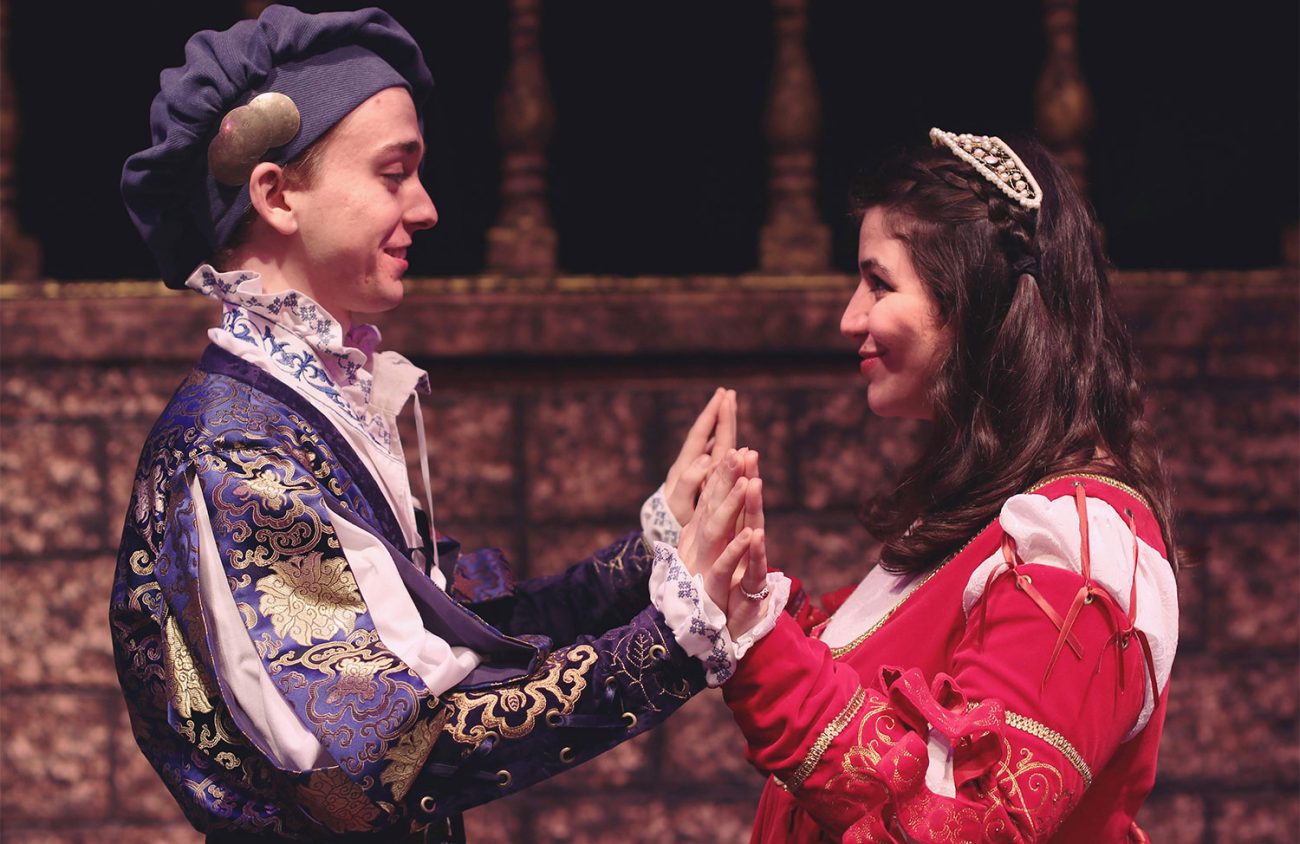Along with being the most accessible and arguably the most popular of Shakespeare’s plays, Romeo and Juliet is also something of an outlier among his greatest works. This is no coincidence.
Neither tragedy (everyone dies), comedy (everyone marries) nor strict history (everyone conspires), Romeo and Juliet is, to all appearances, a straightforward and streamlined romance, albeit of the highly doomed sort. When we think about the play, it’s hard to deny that the first thing that comes to mind is love and death — the untimely demise of two star-crossed, wildly impassioned kids.
Kudos, then, to Cottage Theatre and director Tony Rust for offering us a daring new perspective on this timeless tale — a director’s cut, as it were, and one that doesn’t so much change the nature of the story as expand and challenge the way we think about it.
Drawing from the First Folio, Rust and his large cast and crew evoke a more ambling and holistic vision of what, directly and indirectly, brings about the demise of these two teenaged lovers, and the aftershocks this sends throughout the wider community of Monatagues and Capulets and everyone in between.
The result, interestingly, is that this production more closely resembles an orthodox Shakespearean tragedy than any version of the play I’ve seen. Although the kids are still at the center of the narrative, the focus pulls back a bit from Romeo and Juliet to encompass Verona at large. In a sense, a feedback loop is created, one that reveals the way their forbidden love is enabled, and the damage and healing this spreads to a vast array of seemingly incidental characters.
In other words, Romeo and Juliet don’t love and die in a vacuum; their deaths take a village. In the couple’s suicidal fall, we find enablers, participants, advocates and opponents, and it is one of the pleasures of Rust’s production that familiar characters are cast in a new light, one that draws out shadows of complicity, guilt and a complicated form of expiation.
The cast is solid but too numerous to itemize, though a handful of performances do merit special mention. Any good production of the play hinges on two roles in particular, Mercutio and Juliet, and here Joel Ibanez and Natalie Tichenor fill that requirement wonderfully. Sheldon Hall is also excellent as Romeo, drawing out the manic nature of the broody boy’s lovelorn antics; he is all clowning, pouting and heated swoon.
Kory Weimer brings an aggrieved, slow-burning belligerence to the role of Tybalt. And in the play’s most surprising performance, Larry Brown proves Friar Lawrence more pivotal to the action than previously suspected: a compassionate but conflicted man of faith whose guilt is inseparable from his grace. Brown, a soft-spoken moral barometer, is also the troubled heart of this production.
Be prepared: This is likely not your mind’s version of Romeo and Juliet. The scope has been significantly broadened, and the cost of this expansion is a long play that, at moments, seems to meander and drag. This, however, is the cost of having expectations thwarted, and it’s worth it. Tragedy takes time.
Rather than a hermetic and heartbreaking tale of star-crossed lovers, Cottage Theatre’s production opens things up, allowing a broader reach that draws in a tangle of circumstantial evidence. It’s not so much a re-trying of the infamous case as a civil suit that peers at the full scope of the damage done. And you might be shocked at the toll.
William Shakespeare’s Romeo and Juliet plays through Feb. 17 at Cottage Theatre; tickets and info at cottagetheatre.org or 541-942-8001.
